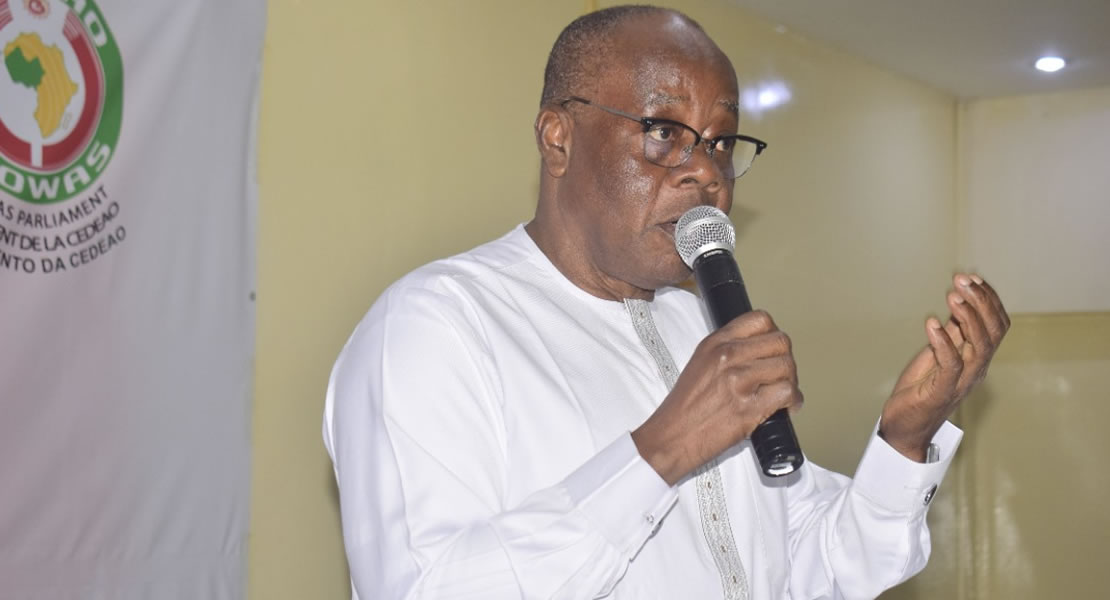
Former Auditor-General of ECOWAS Institutions, Dr Alfred Braimah has urged Central Bank of all member States to collaborate towards the efficient functioning of the ECOWAS Payment and Settlement System (EPSS) in the region.
Dr Braimah made this known at his paper presentation, titled “The missing Sequence Towards ECOWAS Single Currency” during the First 2023 Parliamentary Seminar of the ECOWAS Parliament in Bissau, Guinea Bissau.
He explained that the safety and efficiency of an EPSS are relevant to market participants and public officials in view of their important roles in trade and resource flows and in financial sector management and development.
According to him, Every Central Bank of a member state must be ready to collaborate towards the efficient functioning of the EPSS by signing on to a well-founded legal basis under all relevant jurisdictions of member States.
And must clearly define procedures for managing credit and liquidity risks, specifying the respective responsibilities of the system operator and the participants, and providing appropriate incentives to manage and contain those risks.
“Rules and procedures that would enable participants to have a clear understanding of its impact on each financial risk incurred through participation in it”.
Speaking on the benefits of EPSS, Braimah said that, “with the use of EPSS across Member States, it would be easier to pursue open Economic and Trade policies, since domestic and international payments would flow more seamlessly easily”.
He said Capital and Investment move freely and beneficially, and gains of intra-Regional Trade and economic integration would be more pronounced when supported with an EPSS in the region.
An efficient EPSS would also expedite trade by improving the timeliness and transparency of customs processes and government revenue collection process through the emerged on-line payment transaction and efficient regional payments and settlement system usually plays a key role in the day to day operations of the Foreign exchange market, which involves payments for currency exchange across international borders.
In another paper presentation, Director, Economic Strategy and Research, Ministry of Finance, Ghana, Dr. Alhassan Iddrisu, listed key problems and challenges of ECOWAS Monetary Cooperation Programme (EMCP).
One of the problems and challenges of the EMCP is endogenous shocks such as pandemics, drought, insecurity, epidemics (ebola) and exogenous shocks like, global financial crisis, food and fuel crisis, crash in international commodity prices, weigh heavily on member states macroeconomic performance.
Member States challenges in achieving the convergence criteria on a sustainable basis (continuous for 3 years) as enshrined in the stability and convergence pact continue to delay the launching of the single Currency.
The balance between national economic development priorities and the attainment of zonal macroeconomic convergence targets is often very difficult to determine.
Ghanamps.com